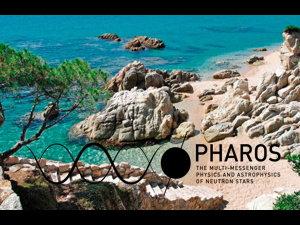Speaker
Mr
Alex Wright
(University of Southampton)
Description
Current models used for neutron star mergers involve a number of approximations, the most widely used of which is ideal MHD. There is reason to believe that at the point of merger, conditions will be such that electrical resistivity may be important and the ideal approximation of perfect conduction breaks down. Furthermore, in order to capture multi-fluid effects such as entrainment, one would need to model the individual particle species separately, namely the neutrons, protons and electrons. At present, simulations of this kind are too computationally demanding for merger simulations, even if the correct multi-fluid formulation were at hand.
Here, we will present the numerical problems incurred by more physically realistic models and discuss methods of reducing the computational overhead set by them. We will describe the benefits of executing simulations on massively parallel hardware, and the steps towards a sub-grid extension of ideal to resistive, multi-fluid MHD.
Primary author
Mr
Alex Wright
(University of Southampton)

